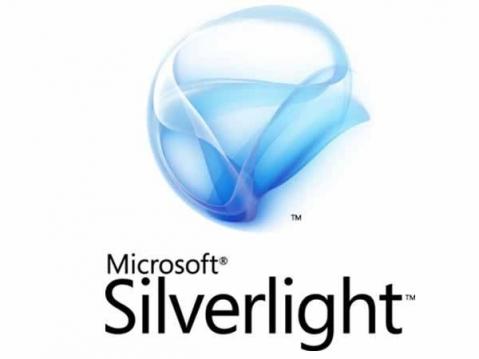The Indie Brand That Fought Its Fans: Lessons from a Small Business’ Social Media Missteps
Key Points
- Professionalism in handling criticism is key. Defensive or emotional responses to customer feedback can quickly escalate into a PR crisis, damaging trust and loyalty.
- Customer relationships drive brand reputation. Small brands thrive on personal connections; mishandling these can unravel years of goodwill and harm brand image.
- Plan and train for social media interactions. Clear social media guidelines and staff training ensure calm, constructive responses, preventing public conflicts and maintaining brand credibility.
The Rise and Fall of an Indie Brand
Starting small and growing a loyal fan base is the dream for many indie brands.
Social media helps these businesses connect with customers, share stories, and showcase products.
But when a brand mismanages this connection, it can backfire badly.
One indie beauty brand, known for its vegan and cruelty-free products, experienced this firsthand.
The brand began with positive momentum.
Fans loved the personal touch and the founder’s regular interactions online. But over time, this connection turned sour.
An argument between the founder and a customer escalated, leading to one of the most notorious examples of a brand fighting its own fans.
The Incident That Sparked the Firestorm
It all started when a customer left a comment on one of the brand’s Instagram posts. The feedback wasn’t malicious, but it pointed out a delay in shipping times and suggested better communication.
Instead of addressing the concern politely, the brand’s founder replied with a defensive tone, blaming supply chain issues and accusing the customer of being impatient.
Fans who saw the interaction felt shocked. They weren’t used to seeing their favorite indie brand respond so harshly.
Screenshots of the exchange spread, gaining traction on beauty forums and other social media platforms.
This wasn’t an isolated incident. More customers started coming forward, sharing their own negative experiences and interactions with the brand’s social media team.
The founder’s defensive behavior continued, responding to criticism with snarky comments.
The Domino Effect
What started as one interaction quickly spiraled. Longtime fans began questioning their loyalty.
Sales dropped, and the brand’s once-friendly image turned sour.
A report from Statista showed that 77% of consumers are more likely to share a positive experience than a negative one. But when they do share a negative experience, it spreads faster.
The backlash was quick and overwhelming. The brand’s Instagram followers dropped by 15% in just two weeks.
Comments flooded in, with many calling out the founder’s unprofessionalism.
Social media expert Karen Lin stated, “Small brands have the unique advantage of building personal relationships with their customers. But if those relationships turn hostile, it can unravel the trust that took years to build.”
Learning from Past Mistakes
There are lessons here for any small business navigating social media.
Responding poorly to criticism can hurt a brand’s reputation more than the initial complaint.
Instead of engaging defensively, businesses should aim to listen and improve to build a strong online presence.
✅Amy’s Baking Company is another well-known example of a small business that clashed with its customers online. The restaurant’s owners responded aggressively to negative reviews on Yelp and social media. The public backlash was so severe that it gained national attention.
These cases highlight the importance of handling customer feedback with care. While frustration is natural, airing it publicly is not.
Damage Control: What to Do When Things Go Wrong
If a brand finds itself in the middle of a social media firestorm, there are ways to recover.
The first step is acknowledging the mistake. A simple, “We hear you and we’re sorry for how we handled this,” can go a long way.
Public relations expert Mike Reynolds advises, “A sincere apology and taking responsibility are key. People want to see that you’re listening and willing to change.”
Using services like erase.com can also help manage the aftermath by pushing down negative search results and boosting positive content.
But while damage control tools are useful, long-term recovery requires genuine change.
Steps to Avoid the Same Mistakes
- Respond Thoughtfully Take time before responding to criticism. It’s easy to reply emotionally, but that rarely works out well. Keeping a cool, professional tone can prevent escalation.
- Engage Constructively Feedback is valuable, even when it’s not positive. Instead of taking it as an attack, view it as an opportunity to learn and improve. Respond by acknowledging the concern and offering solutions.
- Know When to Take It Offline Public arguments draw unwanted attention. If a conversation becomes tense, suggest moving it to private messages or email. This shows you care without turning it into a public spectacle.
- Set Social Media Guidelines Brands should have clear guidelines on how to handle complaints and interactions. Train anyone responsible for social media to manage feedback calmly and professionally. Having a plan in place can prevent defensive or hostile responses.
Positive Examples to Follow
Some indie brands have turned negative feedback into success stories. Glossier, for instance, faced criticism over a new product launch.
Instead of pushing back, they engaged with their followers, asked for feedback, and made changes based on what they heard. The result? Fans appreciated the transparency and felt heard, which strengthened their loyalty.
Another good example is Lush Cosmetics, known for its open dialogue with customers. When faced with criticism, they respond openly and use it as a way to improve. Their community-focused approach has made them a leader in brand-customer relationships.
Final Thoughts
Running a small business means balancing passion and professionalism. Social media is powerful but can be unforgiving when mishandled.
The story of the indie beauty brand that fought its fans serves as a warning. One defensive comment can spiral into a full-blown PR crisis.
Maintaining professionalism and responding thoughtfully to criticism can make the difference between losing customers and earning their loyalty. A simple, kind approach to feedback goes further than any witty comeback.
In the end, customers remember how they were treated more than the product they bought. For small brands, taking time to respond well is an investment in trust and long-term success.




















